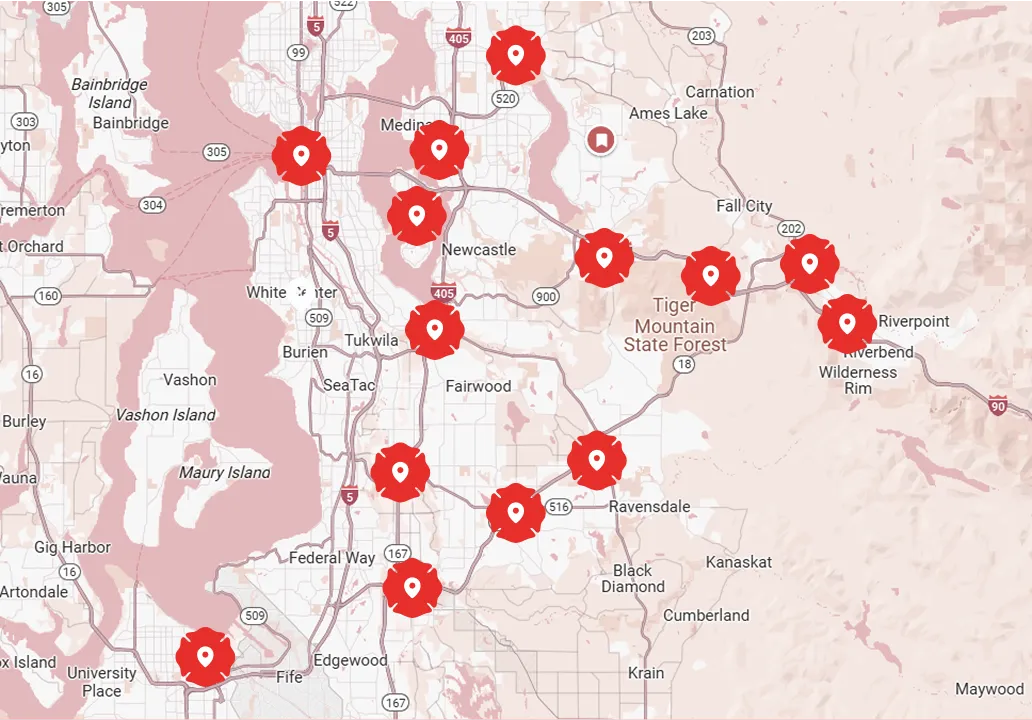Out of State Moving Companies in Seattle, WA
.webp)
Seattle residents planning an interstate move need expertise in federal regulations, liability coverage, and local logistics to ensure a seamless relocation. Our services explain the importance of USDOT/FMCSA credentials, binding and non-binding estimates, and accurate valuation for cost transparency and protection. We address Seattle-specific challenges such as dense neighborhoods, high-rise buildings, limited parking, variable weather, and ferry routes, while offering flexible service options—from basic transport to full white-glove service with storage. Guidance on pricing structures, move preparation, and claims processes helps minimize surprises and ensures a smooth, efficient relocation from start to finish.

Moving Out of State Moving Companies in Seattle, WA
Moving out of state from Seattle requires more than packing boxes — it requires an experienced interstate mover who understands federal regulations, weight-and-distance pricing, and the specific challenges of Seattle neighborhoods. This page profiles what to expect from reputable moving out of state moving companies in Seattle, WA, explains common issues local residents face, outlines service tiers and pricing models for interstate moves, and gives practical guidance to plan a smooth relocation beyond Washington.
Why specialized interstate movers matter for Seattle relocations
Interstate moves are governed by federal rules (FMCSA) rather than state-only regulations. That changes how estimates, liability, and claims are handled. Experienced Seattle-based interstate movers will have:
- USDOT/FMCSA registration and carrier credentials showing they are authorized to transport household goods across state lines.
- Familiarity with binding estimates, nonbinding estimates, and valuation options required for interstate moves.
- Knowledge of Seattle-specific logistics: parking permits, loading zone restrictions, elevator reservations in high-rises, and seasonal weather impacts.
Choosing a mover with documented interstate experience reduces surprises at pickup and delivery and helps protect your shipment under the correct liability rules.
Common out-of-state moving issues in Seattle homes
Seattle’s geography and housing stock create predictable challenges that can affect cost, timeline, and preparation:
- Dense neighborhoods and narrow streets in Capitol Hill, Ballard, and the University District complicate truck access.
- High-rise buildings often require elevator reservations and building paperwork for loading/unloading.
- Weather: rain and occasional winter storms increase the need for protective packing and can delay ferry-dependent routes to island or coastal destinations.
- Parking enforcement and limited curb space can add fees for meter permits, loading zone requests, or shuttle truck use.
- Long carries and stair carries in older homes or townhomes add labor time and charges.
Experienced interstate movers will account for these factors in estimates and service plans.
Typical service tiers for out-of-state moves
Interstate moving companies generally offer tiered services to match different budgets and risk tolerances. Common tiers include:
- Basic Transport (Truck-only or Brokered): Movers load, transport, and deliver your goods. You handle packing and minor prep. Often selected by customers comfortable packing themselves.
- Standard Full-Service Move: Movers pack, load, transport, deliver, and unpack major items. Includes basic disassembly/reassembly of furniture.
- Premium or White-Glove Service: End-to-end handling for fragile, valuable, or specialty items—custom crating, climate-controlled transport, piano or fine-art handling, setup in the new home.
- Hybrid/Container Options: Portable container companies drop a container for self-loading, then transport to your destination. This blends DIY savings with interstate transport logistics.
- Storage-in-Transit and Long-Term Storage: Secure storage at origin or destination when schedules don’t align. Interstate moves commonly use storage-in-transit under FMCSA rules.
Each tier can include add-ons: packing materials, full-value protection, appliance disconnects, vehicle transport, or temporary storage.
How pricing models work for interstate moves
Understanding how interstate movers price work helps you compare estimates apples-to-apples. Expect core pricing elements like:
- Weight-and-distance pricing: For federally regulated interstate moves, carriers commonly base the estimate on the shipment’s weight and the travel distance.
- Types of estimates:
- Nonbinding estimate: Final charge may differ from estimate based on actual weight; mover must explain potential variance.
- Binding estimate: The mover guarantees the total price for the services identified; additional services or accessorials can change the final bill if added later.
- Binding not-to-exceed: If actual weight costs less, you pay the lower amount; if more, you pay up to the guaranteed cap.
- Accessorial charges: fees that can increase the total cost, such as long carry fees, flights of stairs, elevator reservation charges, shuttle service for oversized trucks, packing/unpacking labor, and fuel surcharges.
- Valuation and liability: Released value protection (minimal coverage) vs. full value protection (greater reimbursement). Interstate movers must offer these options and document them on the bill of lading.
Seattle-specific costs can include parking permits or city loading fees for downtown or constrained neighborhoods. A clear, written estimate that lists likely accessorials is essential.
What to expect during the interstate moving process
A reputable moving company will follow a transparent, documented process:
- Initial assessment — in-home or virtual walkthrough to create an inventory and estimate accessorial needs.
- Written estimate and explanation of valuation and estimate type (binding, nonbinding, or not-to-exceed).
- Scheduling pickup and documentation — bill of lading, inventory list, DOT paperwork, and delivery window expectations.
- Packing and loading — professional teams use shrinkwrap, pads, and secure loading to protect items.
- Transit and tracking — interstate carriers provide expected transit times and, in many cases, shipment tracking or regular status updates.
- Delivery and unpacking — scheduling a delivery window and confirming delivery conditions; inspect goods at delivery and note damages on the inventory if necessary.
- Claims process — carriers governed by FMCSA have documented claims procedures and timelines for reporting loss or damage.
Preparing for an out-of-state move from Seattle
Reduce unexpected charges and delays by preparing early and documenting choices:
- Request in-home estimates from interstate-licensed carriers; ask for written clarification of any possible accessorials.
- Reserve elevator permits and loading zones with your building or homeowners association well in advance.
- Declutter and inventory: fewer items typically reduce your weight-based cost.
- Decide on valuation coverage and get it in writing on the bill of lading.
- Plan for Seattle weather: use waterproof packing materials for items stored temporarily on trucks or in open loading situations.
- Schedule flexible dates if possible; peak-moving season (late spring through summer) increases demand and transit windows.
After the move: settling claims and follow-up
Keep all paperwork: the bill of lading, inventory list, estimate, and delivery receipt. If damage occurs, document it immediately with photos and note it on the delivery inventory before the movers leave. File claims according to the carrier’s prescribed timeline and retain copies of all communications.
Final considerations for Seattle residents moving out of state
Choosing a mover for an out-of-state relocation from Seattle means selecting a company with interstate credentials, clear pricing models, and experience handling local logistics such as high-rise moves, elevator coordination, and Seattle parking rules. Understand the difference between estimate types, valuation options, and common accessorials so you can compare offers objectively. With the right preparation and an experienced interstate mover, you can reduce stress, limit unexpected charges, and protect your household goods through every step of the journey.

